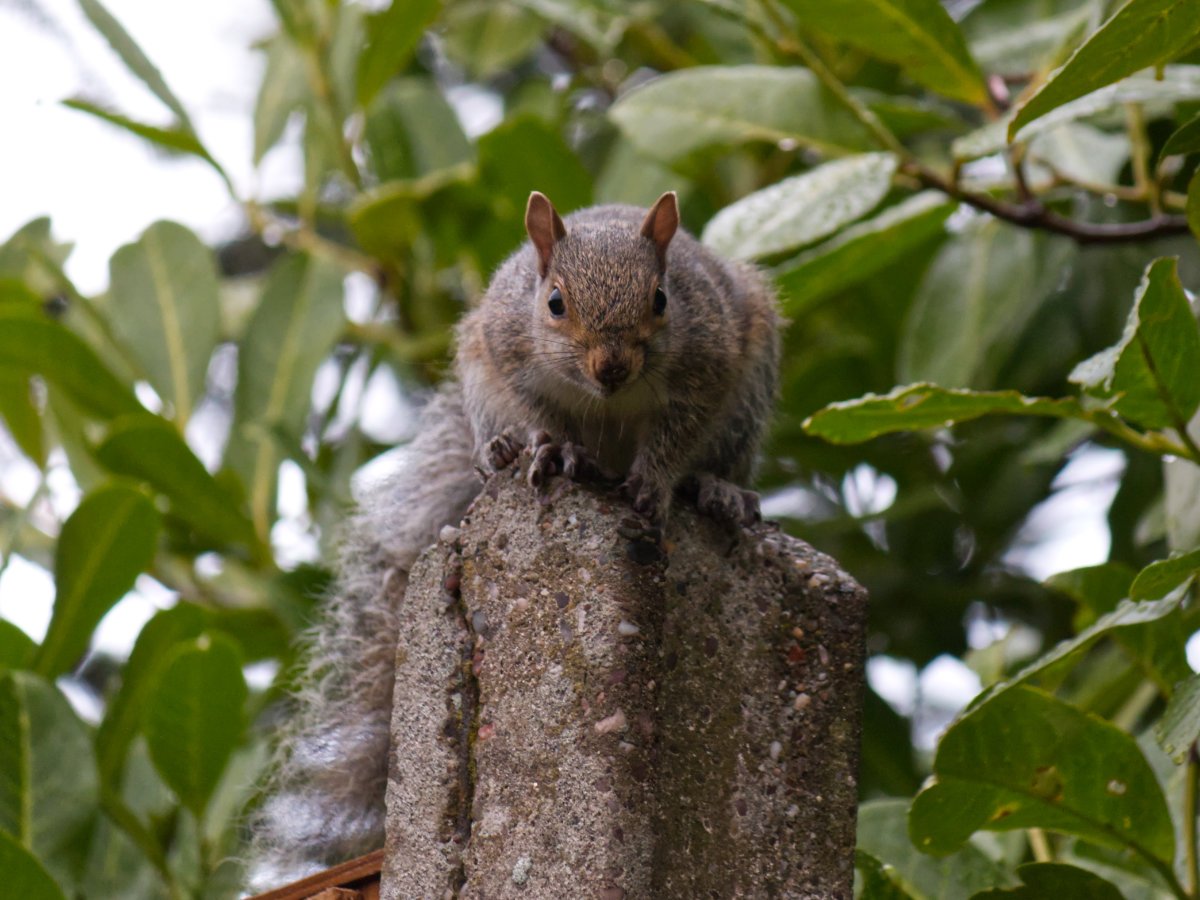Grey squirrels are a bit of a divisive topic depending on who you talk to - on the one hand, they are certainly a contender for one of the more adorable residents of the British Isles, but on the other, they should never have been a resident in the UK at all and are a pest to be rid of. The grey squirrel is an invasive species that has driven the native red squirrel from large areas of these isles and into the furthest reaches, so much in fact that there are plenty of people who may not even be aware of the existence of red squirrels on these islands. So is the grey squirrel a little fluffy devil to be permanently erased from the British Isles, perhaps even Europe in general? Here I aim to take a look over how we got into this situation, how the two varieties of squirrels differ and what, if anything, needs to be done. But before I get into that, here is a quick snippet about these little troublemakers...
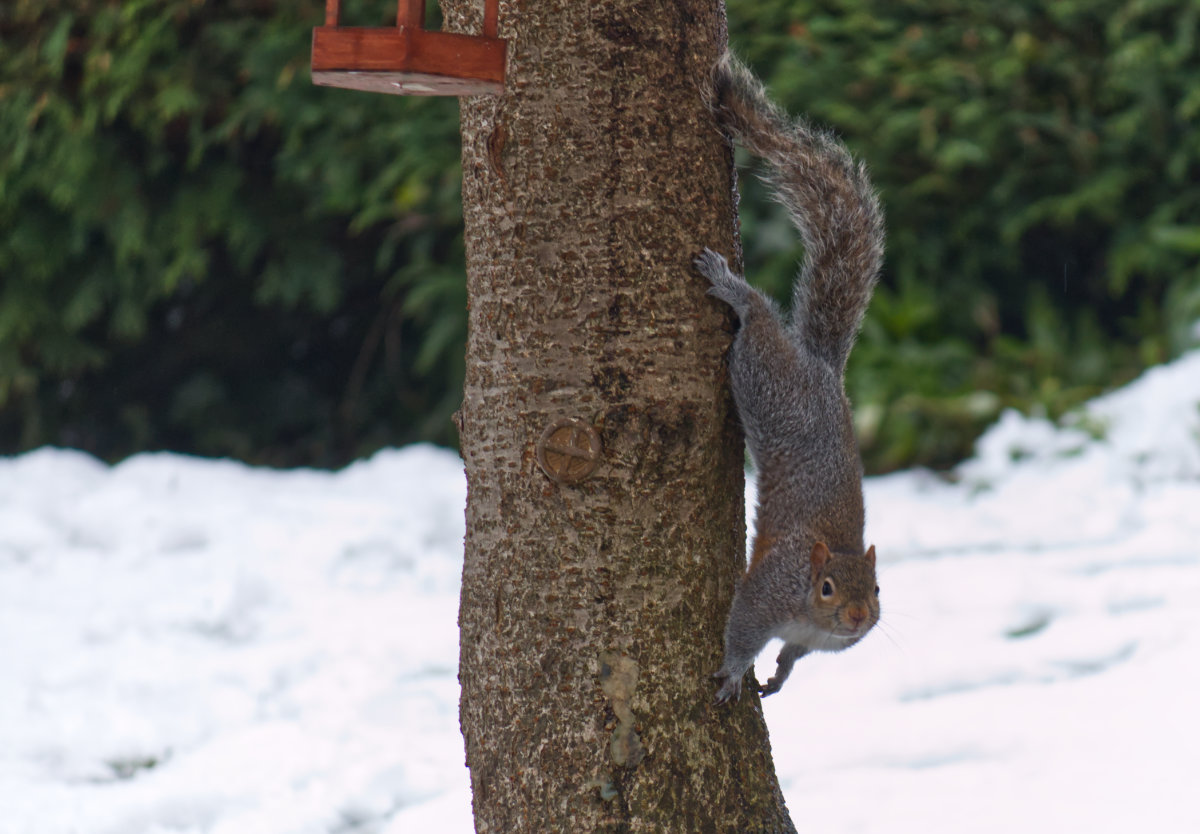
A little about Grey Squirrels
If you are a resident of the British Isles, odds are you have seen a grey squirrel before. They are a small mammal, typically grey, as you may have guessed, but sometimes brown even towards a red hue with a bushy tail often seen holding their hands together in cute ways on Instagram. Whilst certainly more adapted to woodlands, they can survive and even thrive pretty much anywhere with trees and can often be seen well into urbanised areas.
The grey squirrel was originally native to North America, where it formed one of the most successful nature forest creators there. Officially, they are known as 'scatter-hoarders', as you may have seen them busily digging away in your garden before, they create little caches of food to return to later; squirrels can find these caches through a combination of a surprisingly good memory, plus a good sense of smell. Even with these skills they often lose track of some caches, and as a whole species, squirrels are said to be planting millions of trees each year, all by accident!
If you are lucky, you may get to hear one speak. They chatter to one another through sound and posturing, the sounds typically squeak and chatters combined with tail flicks and facial expressions allow them to communicate quite efficiently and if you have ever heard one warning off a potential predator you will know just how strange they can sound. It is not uncommon to hear little barks coming from the treetops as an ornery mother protects its young.
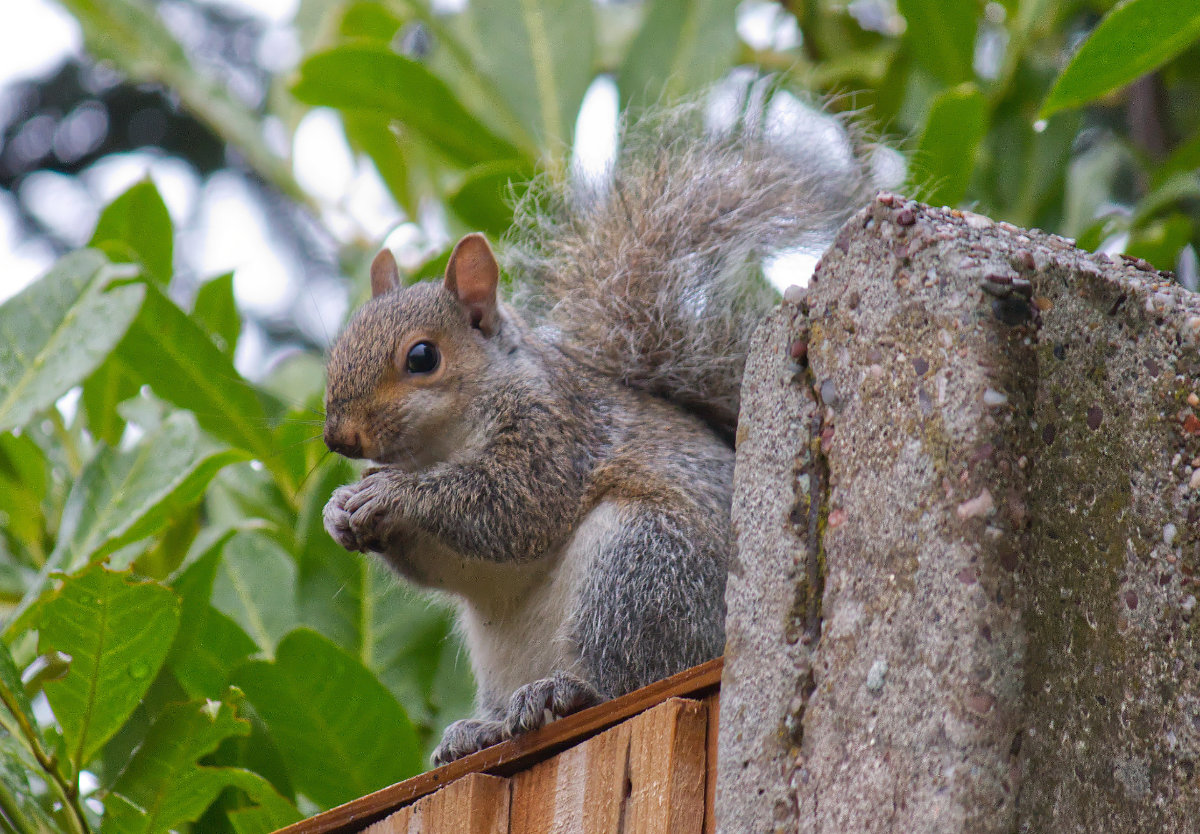
The grey squirrels preferred diet includes tree bark, flowers, berries and of course seeds and nuts. Their enjoyment of bark can cause a problem as the damage they cause to trees may weaken and eventually kill it. They are also known to hunt other animals, including insects, frogs, small rodents and small birds. They are skilful climbers and are amongst the few mammals that can descend trees headfirst - they are able to pull this off by turning their hind feet upwards to grip the tree bark.
Squirrel homes, or a drey, can be spotted high in trees between the forks of trunks in a sturdy spot - looking somewhat like a nest but more of a large ball shape rather than having an open top. They do not hibernate, but are typically only active in the early and late hours of the day - their drey is used for sleep, nesting as well as escaping the colder days and they do not hibernate.
What's the problem with Grey Squirrels?
So to start out with, why would grey squirrels be a problem? Well, as with any non-native invasive species, they cause a disruption to the local ecosystem which can have knock-on effects on other animals in the area. Any species introduced to an area will inevitably become a part of the local ecosystem and food chain, which can have unfortunate consequences for whoever they displace. Specifically, grey squirrels compete directly with our native red squirrels, but as the grey variant is generally larger and a much more successful gatherer (as well as being skilled in pilfering red squirrel food caches) they have simply gained the upper hand over time whilst red squirrels have suffered. There is another unfortunate issue with grey squirrels and that is their potential to carry disease to their red counterpart, specifically squirrel pox - a disease they are immune to but the native red squirrels are not.
So they don't belong and cause havoc to the local wildlife, plus their ability to destroy trees and dig up gardens all means they often get labelled as a pest by most people. So should the little furry devil be chastised and demonised in our eyes? Considering it's hardly their fault they are here to begin with, and they are far from the only non-native species to join these isles, it feels a little harsh. You can look at the list here on Wikipedia, it may surprise you to see just how many animals in the British Isles don't strictly belong. Everything from the European rabbit, fallow deer, carp, pheasant and more, some of which have become an iconic sight on the British landscape, do not belong - so how did we get to this position of loving some invaders but hating the grey squirrel?
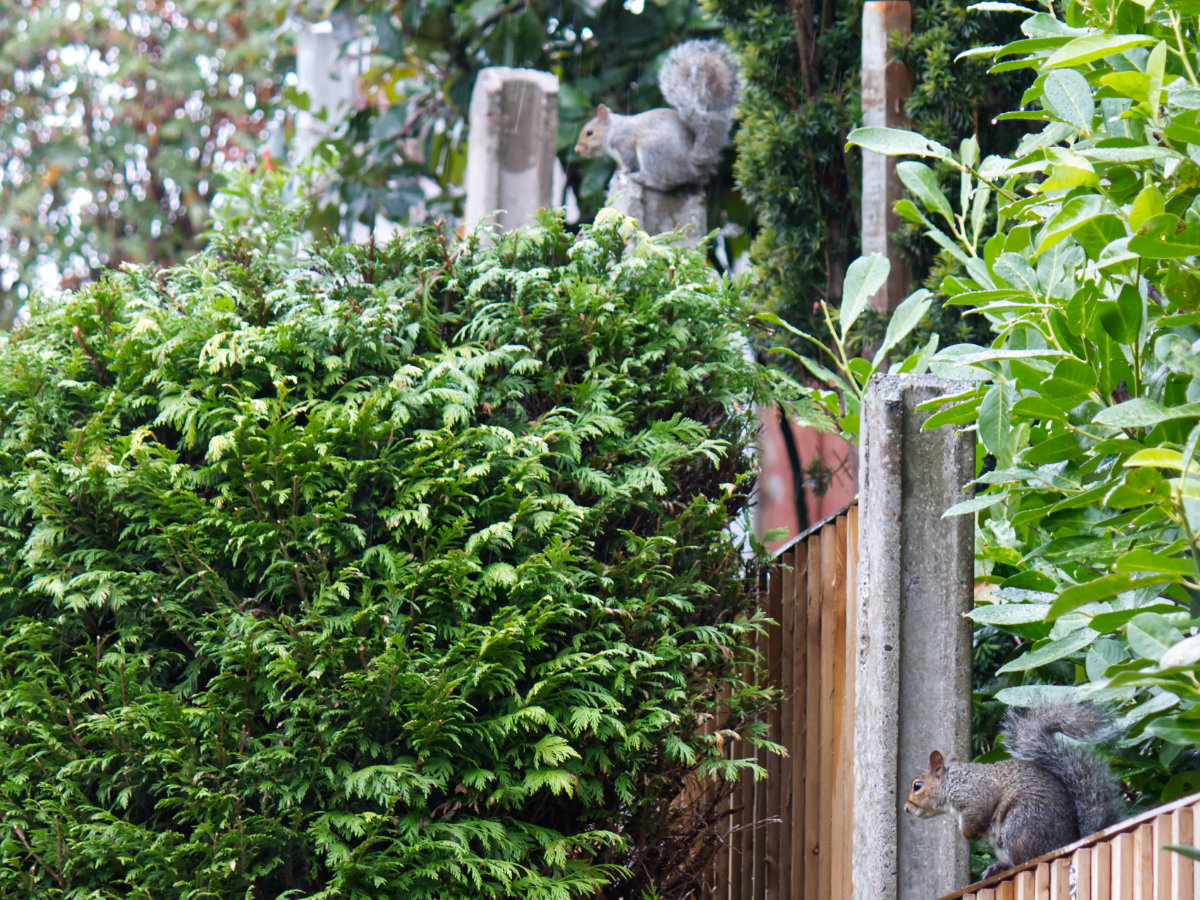
How did we get grey squirrels?
I think there is one major defining factor that compares grey squirrels to the other animals listed above - chiefly, those animals listed have pretty much all been here for many, many years more. The rabbits were introduced by the Romans, Fallow Deer came with the Normans in the 11th century, Carp came some time in the 13th century and pheasants also came over with the Normans. Grey Squirrels? 1876. So while they may be the new kid on the block, they do share a common thread in that none are here by their own choice. Grey squirrels specifically were introduced to these isles for the same reasons many animals were, they came over as playthings and to join the menageries of well-to-do toffs who either failed to keep them secure or deliberately released them to open areas. An invasive species feels a little bit harsh of a label for the animal, they had no choice in the matter as it was an entirely human decision and we have to deal with our own poor decisions as a result - they're more naturalised than invasive. So how bad is the situation?
Red vs grey - what can be done?
Let us start with a simple statement: things for the red squirrel don't look great. Every effort should be made to conserve a species and I am all for that, as well as making efforts to reintroduce long since extinct creatures on these isles, but for the most part, hating grey squirrels won't bring back reds. In fact, in some areas of the British Isles, there is a whole generation or two that have no concept of a red squirrel - I was lucky to have seen them in person in Spain... You can see the map below with some of the most up to date information, which depicts the rough areas of red vs squirrel populations from the Red Squirrel Survival Trust, that reds have been seriously pushed out of these lands. Areas of the south of England in particular haven't seen a red squirrel since before World War II!
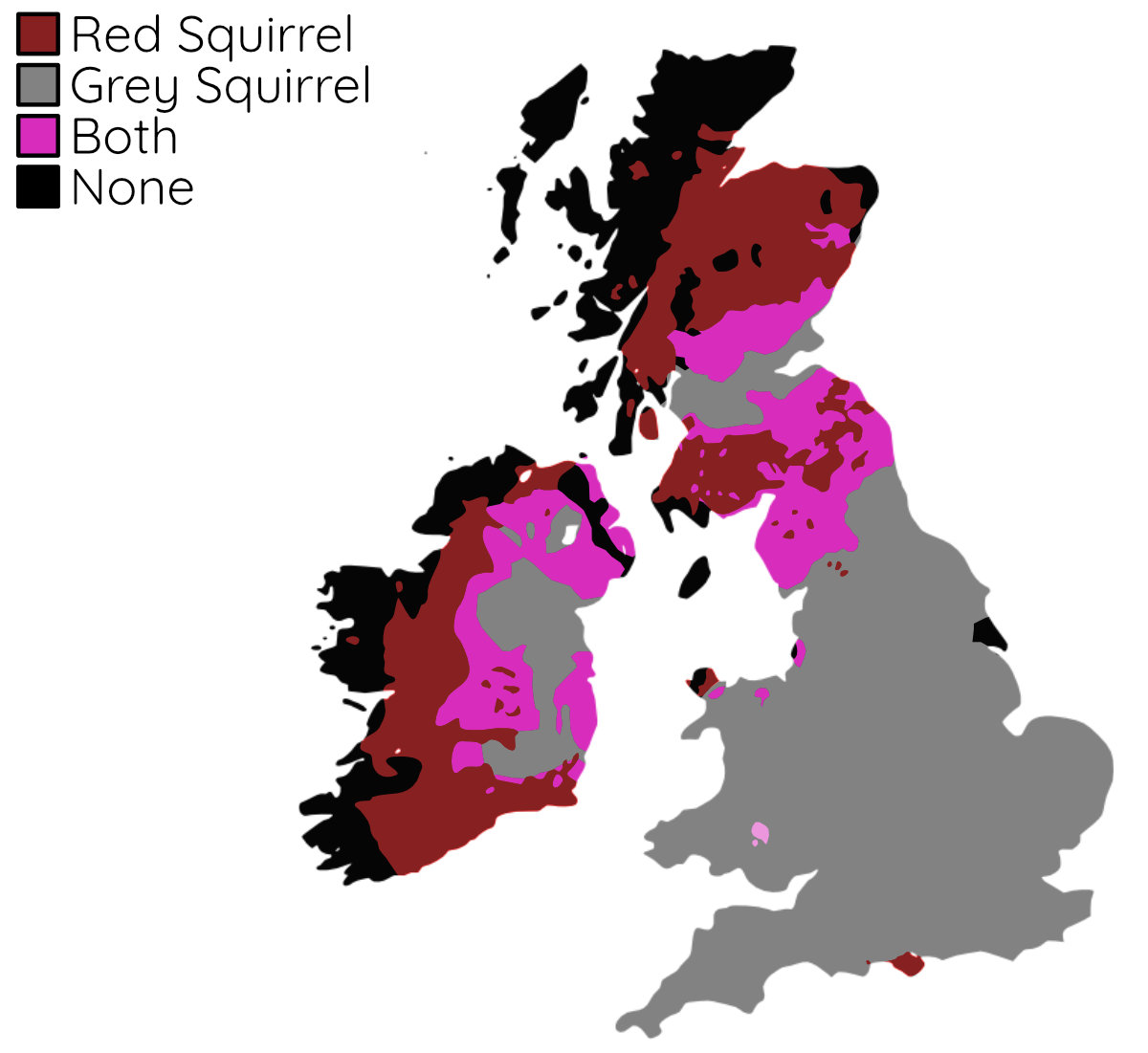
The obvious answer for some, especially those who regard grey squirrels as pests, is to cull grey squirrels to allow red squirrels to return. In areas that are shared by both red and grey squirrels, it is easy to understand why that may make sense and would likely help in strengthening red populations there, but it hardly seems worth culling grey squirrels in the south of England does it? Unless the reds are about to craft boats to cross over from the Isle of Wight they're hardly likely to make their way back any time soon. Plus, those who regard the greys as a pest are equally likely to regard red squirrels the same too - they share a lot of the same behaviours as greys, so if they were the dominant population they would likely be just as annoying. Unfortunately, grey squirrels may be all vast swathes of the British Isles get to see for the foreseeable future and having some form of nature is preferable to having none. Plus squirrels, red or grey, form part of the food chain by being predated by birds of prey as well as occasionally by foxes, wild cats, stoats etc. It seems large areas will be keeping the grey squirrel for the foreseeable future.
So instead of simply culling grey squirrels - perhaps there is another, more natural, answer. The pine marten could potentially be a great candidate for population control of the grey squirrels, a creature that is actually native to these isles and is said to have a taste for greys over reds, sadly it has been pushed into probable extinction in England, with a limited population left in Wales and a moderately healthy one occupying the highlands. The pine marten is an equally adorable creature that I would love to see thrive again in the United Kingdom, and if its introduction to grey squirrel areas could be a means to help control their population then that could be a serious win-win. No solution seems ideal, and it is pretty apparent that if we want reds to remain here we need to do something about the greys, but if we manage to bring back one native species in the process then I am all for it.
Should I be feeding grey squirrels?
Perhaps the question that brought you to this article, or at least the one you've been asking yourself all along, is should you be feeding grey squirrels? The simple answer is that we really should not be feeding any wildlife, but as with many things, human interference may well be a useful way to offset past human interference. Let's be real, for vast areas of the United Kingdom we have created a very hostile environment to animals where trees have been ripped down and concrete paved over open spaces, so it can feel like giving the local wildlife a helping hand can seem like the right thing to do. Plus feeding grey squirrels may help limit the damage they do to trees and reduce their predation of other animals. The RSPCA generally advise against the feeding of squirrels but instead recommend you create a suitable environment for them by planting trees that match their needs such as oak etc.
Just remember that if you do decide to feed your local squirrels, as with any other wild animal, you may create a dependency on that food source; be prepared to always keep that food well-stocked, or perhaps to feed sparingly as a means to supplement natural food sources rather than completely replace. But ultimately, if you have the space available, you could create a little wild garden with appropriate trees and berry bushes that would make any nearby squirrel very happy.
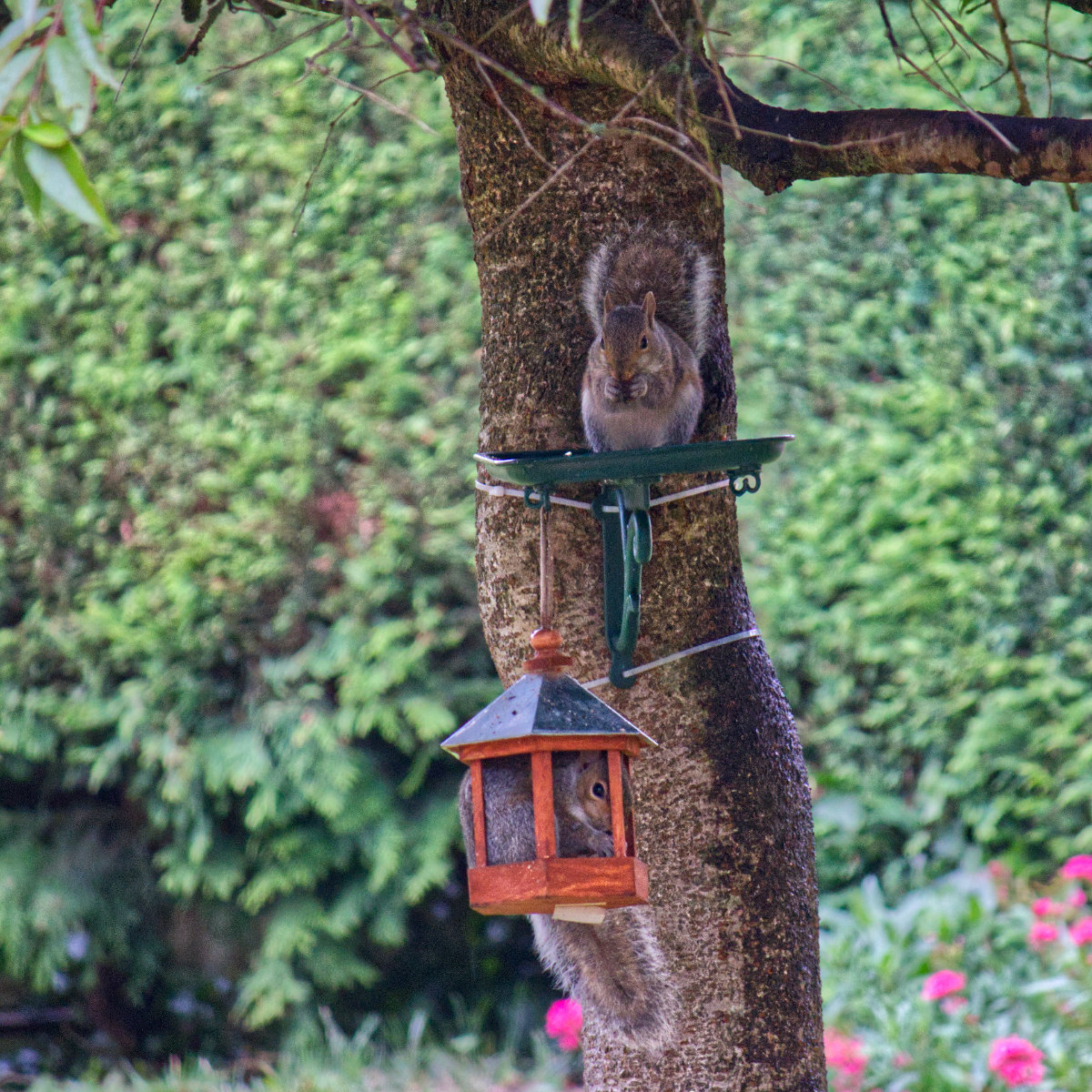
Grey squirrels can be a controversial topic, but it feels important to acknowledge that not only are they not here by choice, but they are also only operating by their own nature. There is a difficult discussion here, as with any invasive species, as to how it should be handled and what route would best protect the dwindling populations it has impacted; no doubt scientists and ecologists will have a difficult road ahead if we are to be able to protect the native red squirrel without disrupting the food chain that may well now rely upon the presence of the grey squirrel. It would be nice to think that a healthy equilibrium could be established, but it seems much more likely that without some kind of intervention the grey squirrel will keep pushing into red squirrel territory. I would like to imagine a future where the use of a more natural barrier, such as reintroducing pine marten populations as a divide between grey and red squirrel populations, could be viable, but this would be so far into the future. For now, enjoy the wildlife you have, and invasive or not, they make a great photo subject and an entertaining visitor to our gardens all the same...
